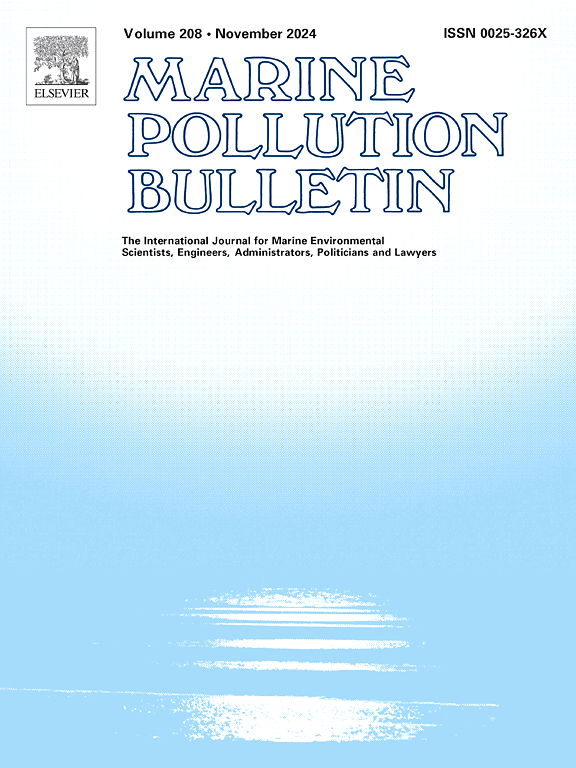Ecological impacts of floating offshore wind on marine mammals and associated trophic interactions: current evidence and knowledge gaps
IF 4.9
3区 环境科学与生态学
Q1 ENVIRONMENTAL SCIENCES
引用次数: 0
Abstract
Floating offshore wind is expected to expand globally into further offshore, deeper and highly productive shelf seas to utilise increased and more consistent wind energy. Marine mammals represent mobile species that connect across regions and can indicate wider ecosystem changes. To date, only a handful of ecological impact studies have been conducted at floating offshore wind farms, due to the infancy of the technology and small numbers of operational sites. Understanding how floating offshore wind could alter ecosystem functions and impact species at individual and population levels will be essential to mitigate potential negative ecological impacts as the sector expands. Currently, numerous floating offshore wind sites are planned or already in development. Therefore, evaluating current knowledge and remaining knowledge gaps will benefit future projects in assessing ecological impacts and determining where additional research should be conducted. This review summarises the positive and negative ecological impacts that have been previously highlighted as potential impacts from floating offshore wind, focusing on marine mammals, whilst also considering prey and broader trophic interactions. Current studies at operational floating offshore wind sites are summarised and discussed in context of observed and/or anticipated impacts. Finally, key outstanding research areas are suggested in relation to each impact.
海上漂浮风对海洋哺乳动物的生态影响及其相关的营养相互作用:目前的证据和知识差距
漂浮式海上风电预计将在全球范围内扩展到更远的近海、更深和高产的大陆架海域,以利用更多和更稳定的风能。海洋哺乳动物代表了跨区域联系的流动物种,可以表明更广泛的生态系统变化。迄今为止,由于技术尚处于起步阶段,且运营地点较少,只有少数几项针对浮动海上风力发电场的生态影响研究。了解漂浮式海上风电如何改变生态系统功能,并在个体和种群水平上影响物种,对于减轻该行业扩张带来的潜在负面生态影响至关重要。目前,许多海上浮式风力发电站正在规划或正在开发中。因此,评估现有的知识和剩余的知识差距将有利于未来评估生态影响和确定应在何处进行进一步研究的项目。这篇综述总结了漂浮海上风对生态的积极和消极影响,这些影响之前被强调为潜在的影响,重点是海洋哺乳动物,同时也考虑了猎物和更广泛的营养相互作用。在观察到的和/或预期的影响的背景下,总结和讨论了目前在运行的浮式海上风力场址的研究。最后,针对每个影响提出了重点突出的研究领域。
本文章由计算机程序翻译,如有差异,请以英文原文为准。
求助全文
约1分钟内获得全文
求助全文
来源期刊

Marine pollution bulletin
环境科学-海洋与淡水生物学
CiteScore
10.20
自引率
15.50%
发文量
1077
审稿时长
68 days
期刊介绍:
Marine Pollution Bulletin is concerned with the rational use of maritime and marine resources in estuaries, the seas and oceans, as well as with documenting marine pollution and introducing new forms of measurement and analysis. A wide range of topics are discussed as news, comment, reviews and research reports, not only on effluent disposal and pollution control, but also on the management, economic aspects and protection of the marine environment in general.
 求助内容:
求助内容: 应助结果提醒方式:
应助结果提醒方式:


